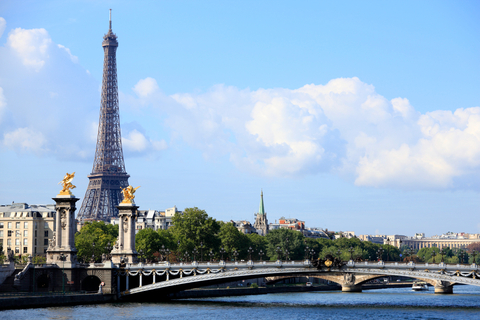Moving from Denmark to France
Moving from
Denmark to France

How It Works
Why choose us?
Experience is the key of success and that’s what our service providers have in abundance
5000+
50+


500+
home
improvements
Find help quick & easy!
Moovick is an all-in-one platform that provides clients with on-demand, professional Service Providers for moves and home renovation jobs in real-time for their day-to-day needs.
Car
Van
3.5T Trucks
7.5T (+) Trucks
Car (Taxi / Combo)
Perfect for small boxes, airport pick ups and luggage transfer.
Van (7-17 m3)
Great for moving studio or one bedroom apartments with basic furniture items and boxes.
3.5T Truck (20-24 m3)
Best for 1-2 bedroom apartments, small homes moves and commercials goods.
7.5T (+) Trucks
Best for 2 to 3 room apartments and upto 10 standard size pallets
Things to Know Before Moving from Denmark to France
Moving from Denmark to France is an exciting new chapter in life. It's not just about relocating to a new place but also about experiencing a different way of living. Denmark and France are very different from each other. Denmark might feel calm and straightforward, while France offers busy cities like Paris, beautiful countryside, and lots of history and food to enjoy. This relocation is about exploring new places, learning new things, meeting different people, and learning a new language. Whether you're moving for a job, school, or just for a change, Moving from Denmark to France is an exciting adventure that will help you grow. In this guide, you will learn the essential tips for navigating legal processes and understanding the culture to make your transition as smooth as possible.

FAQs
Moving from Denmark to France requires careful navigation of various legal and administrative processes to ensure a smooth transition. Here are some essential steps to consider:
Visas and Permits
As an EU citizen, you have the freedom to move to France. However, being familiar with the country's unique legal system is vital to make the transition as smooth as possible. To start your stay in France, you must register at your local town hall or prefecture. Bring necessary documents such as your ID, proof of address, and employment details. Learning about your rights to work, access healthcare, and vote in local elections is also important. These are essential steps for international moving from Denmark to France, especially for EU citizens.
Moving to France can present challenges, such as language barriers and navigating French administrative processes. The process can be bureaucratic, involving paperwork in French, which may be difficult for newcomers. It's advisable to seek legal advice or assistance to navigate and understand the French tax system, which impacts employment and healthcare rights.
Respect and adhere to the legal frameworks that govern life in France to ensure a successful move from Denmark to France and a successful integration into your new community.
Healthcare System
France has a well-established healthcare system that offers high-quality and accessible care. To receive medical care, residents register with Assurance Maladie via CPAM, a primary health insurance fund in France, and provide the necessary documents. The state covers most medical costs, but many obtain additional private insurance. Payments are made directly to the doctor, with partial reimbursement from Assurance Maladie. A Carte Vitale is essential for identification purposes and reimbursement facilitation. Understanding the registration process and how the system works is crucial to ensuring you and your loved ones receive proper care in France.
Banking and Finances
Opening a bank account for your move from Denmark to France is essential in maintaining financial stability, understanding the requirements for opening an account, and managing your finances in a new currency. The requirements for opening a bank account in France vary depending on the bank. Still, they generally include proof of identity (such as a passport or national ID card), proof of address (like a utility bill or a rental agreement), and sometimes proof of income or employment. Non-residents may need to fulfil additional requirements or open a specific type of account.
A French bank account can make paying bills, receiving a salary, and managing daily expenses much more accessible. However, the cost of living in France can vary widely depending on the region you choose to stay, which is an essential factor to consider when planning your finances. Understanding these differences and planning accordingly ensures a smooth financial transition to your new life in France.
Embracing the French Lifestyle
Adapting to the French lifestyle is exciting yet significant. The French people are known for their 'joie de vivre,' a phrase that encapsulates the enjoyment of life. The French lifestyle is more relaxed. People in France enjoy long lunches and spending time with family. This differs from countries like Denmark, where people focus more on work. The French see resting and relaxing as necessary, not as wasted time.
Embracing this change means appreciating the moments of relaxation as much as the French do, seeing them not as lost productivity but as essential components of a fulfilling life.
Language Barrier
When Internationally Moving from Denmark to France. Navigating the language barrier can be challenging. While many Danes speak English, the French prefer to speak their native language at all times. This can make simple tasks, such as shopping or setting up services, difficult. Therefore, learning French is a good idea as it will help you connect better with people and show respect for their culture. You can learn French by taking classes or using language learning apps like Duolingo. Additionally, talking with locals helps a lot. This will accelerate your learning process and make it easier for you to fit into French society.
Cuisine Differences
When moving from Denmark to France, the culinary shift is like going on a big food adventure. Food is an integral part of French culture, and it's not just about the taste but also about how food looks, which makes eating a special event. In France, people have specific foods for different times and take their meals very seriously.
This international move allows one to try different cheeses, wines, cakes, and local dishes. It’s a chance to understand how food brings people together and demonstrates what's essential in a culture. For example, dishes such as "Coq au Vin" or "Bouillabaisse" are reserved for big dinners or special occasions. This exemplifies how meals are times to celebrate and come together in France.
Living in France without speaking French is possible, especially in large cities where English is every day. However, not knowing French can limit your experience and integration. Daily interactions become more accessible with a basic understanding of French. Speaking the language enriches your social life and helps you appreciate French culture.
It's accessible and high-quality, but ensure you're registered and understand how to access services.
Online portals, real estate agents, and local networks can be valuable resources in your search for the perfect home.
Yes, EU licenses are valid, but check if you need to exchange them after a certain period.
Moving to France can be cheaper than Denmark, depending on where you live. For example, a one-bedroom apartment in Paris can cost around €1,200, similar to Copenhagen. However, in smaller French towns, you might find something for around €600, which is much cheaper. Always research the cost of living in your area before moving to manage your budget effectively.
You'll need proof of residence, identification, and possibly a French phone number. Some banks offer services in English and online account setup.
Are you moving to France? Moovick can help! Our expert international movers will guide you through the process to make your move stress-free. From local customs to regulations, we've got you covered. Focus on embracing new opportunities in your new home and leave the hassle of moving to us.







